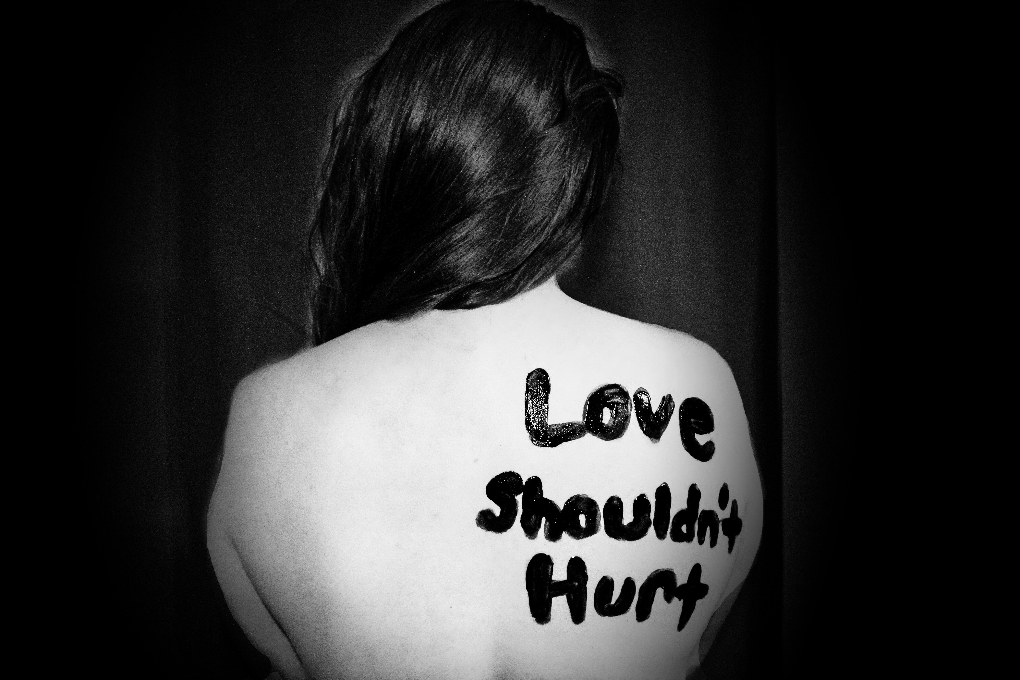The lockdown has triggered a spike in domestic violence against women globally. In India, domestic abuse complaints are at a 10-year high. But this isn’t a problem exclusive to the pandemic. Nor is it limited to economically disadvantaged women confined in tiny homes. It’s a regular reality for many Indian women across all ages, relationship statuses and income brackets. It’s important to remember that violence against men also happens, but we will focus on women here.
In Southeast Asia, almost 38% of women experience some form of sexual and/or physical violence by their intimate partner in their lifetime. And despite being so rampant, violent relationships often stay undercover and under-reported. It’s important to know the different types of abuse and how to recognize if it’s happening to you or to someone close to you, so read on.
What is domestic violence versus intimate partner violence?
If any of these reasons are true for you or someone you know, our mental health providers and counsellors can help navigate these difficult situations. If you’d like to talk to a trained mental health professional, book an appointment with Veera.
Disclaimer: Content on Veera is provided for informational purposes only and is not intended as medical advice or as a substitute for medical advice given by a physician or trained professional.
References:[1] National Commission for Women release, https://economictimes.indiatimes.com/news/politics-and-nation/india-witnesses-steep-rise-in-crime-against-women-amid-lockdown-587-complaints-received-ncw/articleshow/75201412.cms[2] Dynamics of Domestic Violence. (n.d.). Retrieved August 03, 2020, from http://www.domesticabuseproject.com/get-educated/dynamics-of-domestic-violence/[3] Dodgson, L. (2017, August 11). Psychological abusers don’t go for the weak – they choose strong people because they ‘like a challenge’. Retrieved August 14, 2020, from https://www.businessinsider.com/strong-confident-people-end-up-in-abusive relationships-2017-8?IR=T[4] Vignesh Radhakrishnan & Sumant Sen & Naresh Singaravelu. (2020, June 24). Data: Domestic violence complaints at a 10-year high during COVID-19 lockdown. Retrieved August 02, 2020, from https://www.thehindu.com/data/data-domestic-violence-complaints-at-a-10-year-high-during-covid-19-lockdown/article31885001.ece[5] Garcia-Moreno, C., Guendes, A., & Knerr, W. (n.d.). Understanding and addressing violence against women (pp. 1-12, 12.32). WHO. doi:https://apps.who.int/iris/bitstream/handle/10665/77432/WHO_RHR_12.36_eng.pdf;jsessionid=65DF0A9474B42E2928D3D4F0D247DBE3?sequence=1
It might seem straightforward for someone suffering from such violence to just end the relationship. For many victims, this may not seem possible or may even be dangerous. You may be wondering why some women choose to tolerate abuse over walking out, but it’s important to understand these if you want to help a friend or to recognize what’s holding you back from leaving a toxic relationship:
- Financial dependence on a partner: Not having any other means to support themselves or their children.
- Lack of awareness: Emotional abuse may be disguised as a personality trait. Manipulative partners trick their victims into thinking their abusive behaviour is normal.
- Societal stigma: Some women think an abusive marriage or relationship means their own personal failure as a woman. They also have a fear of being judged negatively by society if they leave.
- Pressure from friends and family: Sometimes, they may be forced to return to an abusive relationship by their own friends or family.
- Faith in changing their abuser: A very common misconception with victims is that their partner will eventually change if they stick it out. This is why even strong and independent women end up in abusive relationships, taking on the challenge of trying to change their partners.
- Child custody: Fear of upsetting or getting separated from their children
- Retaliation: Fear that their partner may retaliate with further violence or acid attacks
If any of these reasons are true for you or someone you know, our mental health providers and counsellors can help navigate these difficult situations. If you’d like to talk to a trained mental health professional, book an appointment with Veera.
Disclaimer: Content on Veera is provided for informational purposes only and is not intended as medical advice or as a substitute for medical advice given by a physician or trained professional.
References:[1] National Commission for Women release, https://economictimes.indiatimes.com/news/politics-and-nation/india-witnesses-steep-rise-in-crime-against-women-amid-lockdown-587-complaints-received-ncw/articleshow/75201412.cms[2] Dynamics of Domestic Violence. (n.d.). Retrieved August 03, 2020, from http://www.domesticabuseproject.com/get-educated/dynamics-of-domestic-violence/[3] Dodgson, L. (2017, August 11). Psychological abusers don’t go for the weak – they choose strong people because they ‘like a challenge’. Retrieved August 14, 2020, from https://www.businessinsider.com/strong-confident-people-end-up-in-abusive relationships-2017-8?IR=T[4] Vignesh Radhakrishnan & Sumant Sen & Naresh Singaravelu. (2020, June 24). Data: Domestic violence complaints at a 10-year high during COVID-19 lockdown. Retrieved August 02, 2020, from https://www.thehindu.com/data/data-domestic-violence-complaints-at-a-10-year-high-during-covid-19-lockdown/article31885001.ece[5] Garcia-Moreno, C., Guendes, A., & Knerr, W. (n.d.). Understanding and addressing violence against women (pp. 1-12, 12.32). WHO. doi:https://apps.who.int/iris/bitstream/handle/10665/77432/WHO_RHR_12.36_eng.pdf;jsessionid=65DF0A9474B42E2928D3D4F0D247DBE3?sequence=1
[/vc_column_text][/vc_column][/vc_row]
Why do women remain in abusive relationships ?
It might seem straightforward for someone suffering from such violence to just end the relationship. For many victims, this may not seem possible or may even be dangerous. You may be wondering why some women choose to tolerate abuse over walking out, but it’s important to understand these if you want to help a friend or to recognize what’s holding you back from leaving a toxic relationship:
- Financial dependence on a partner: Not having any other means to support themselves or their children.
- Lack of awareness: Emotional abuse may be disguised as a personality trait. Manipulative partners trick their victims into thinking their abusive behaviour is normal.
- Societal stigma: Some women think an abusive marriage or relationship means their own personal failure as a woman. They also have a fear of being judged negatively by society if they leave.
- Pressure from friends and family: Sometimes, they may be forced to return to an abusive relationship by their own friends or family.
- Faith in changing their abuser: A very common misconception with victims is that their partner will eventually change if they stick it out. This is why even strong and independent women end up in abusive relationships, taking on the challenge of trying to change their partners.
- Child custody: Fear of upsetting or getting separated from their children
- Retaliation: Fear that their partner may retaliate with further violence or acid attacks
If any of these reasons are true for you or someone you know, our mental health providers and counsellors can help navigate these difficult situations. If you’d like to talk to a trained mental health professional, book an appointment with Veera.
Disclaimer: Content on Veera is provided for informational purposes only and is not intended as medical advice or as a substitute for medical advice given by a physician or trained professional.
References:[1] National Commission for Women release, https://economictimes.indiatimes.com/news/politics-and-nation/india-witnesses-steep-rise-in-crime-against-women-amid-lockdown-587-complaints-received-ncw/articleshow/75201412.cms[2] Dynamics of Domestic Violence. (n.d.). Retrieved August 03, 2020, from http://www.domesticabuseproject.com/get-educated/dynamics-of-domestic-violence/[3] Dodgson, L. (2017, August 11). Psychological abusers don’t go for the weak – they choose strong people because they ‘like a challenge’. Retrieved August 14, 2020, from https://www.businessinsider.com/strong-confident-people-end-up-in-abusive relationships-2017-8?IR=T[4] Vignesh Radhakrishnan & Sumant Sen & Naresh Singaravelu. (2020, June 24). Data: Domestic violence complaints at a 10-year high during COVID-19 lockdown. Retrieved August 02, 2020, from https://www.thehindu.com/data/data-domestic-violence-complaints-at-a-10-year-high-during-covid-19-lockdown/article31885001.ece[5] Garcia-Moreno, C., Guendes, A., & Knerr, W. (n.d.). Understanding and addressing violence against women (pp. 1-12, 12.32). WHO. doi:https://apps.who.int/iris/bitstream/handle/10665/77432/WHO_RHR_12.36_eng.pdf;jsessionid=65DF0A9474B42E2928D3D4F0D247DBE3?sequence=1
[/vc_column_text][/vc_column][/vc_row]
While physical and financial abuse are easy to identify, emotional abuse by a partner is harder to pinpoint and call out. Recognizing red flags early can help you protect yourself or someone you know from a potentially dangerous relationship. Here are some signs to watch out for:
- Extreme jealousy and possessiveness
- Gaslighting, blaming and shaming
- Constant insulting and name-calling
- Physical aggression and anger issues
- Stalking and obsessive neediness
- Substance abuse and addictions
- Controlling how you dress or behave
Why do women remain in abusive relationships ?
It might seem straightforward for someone suffering from such violence to just end the relationship. For many victims, this may not seem possible or may even be dangerous. You may be wondering why some women choose to tolerate abuse over walking out, but it’s important to understand these if you want to help a friend or to recognize what’s holding you back from leaving a toxic relationship:
- Financial dependence on a partner: Not having any other means to support themselves or their children.
- Lack of awareness: Emotional abuse may be disguised as a personality trait. Manipulative partners trick their victims into thinking their abusive behaviour is normal.
- Societal stigma: Some women think an abusive marriage or relationship means their own personal failure as a woman. They also have a fear of being judged negatively by society if they leave.
- Pressure from friends and family: Sometimes, they may be forced to return to an abusive relationship by their own friends or family.
- Faith in changing their abuser: A very common misconception with victims is that their partner will eventually change if they stick it out. This is why even strong and independent women end up in abusive relationships, taking on the challenge of trying to change their partners.
- Child custody: Fear of upsetting or getting separated from their children
- Retaliation: Fear that their partner may retaliate with further violence or acid attacks
If any of these reasons are true for you or someone you know, our mental health providers and counsellors can help navigate these difficult situations. If you’d like to talk to a trained mental health professional, book an appointment with Veera.
Disclaimer: Content on Veera is provided for informational purposes only and is not intended as medical advice or as a substitute for medical advice given by a physician or trained professional.
References:[1] National Commission for Women release, https://economictimes.indiatimes.com/news/politics-and-nation/india-witnesses-steep-rise-in-crime-against-women-amid-lockdown-587-complaints-received-ncw/articleshow/75201412.cms[2] Dynamics of Domestic Violence. (n.d.). Retrieved August 03, 2020, from http://www.domesticabuseproject.com/get-educated/dynamics-of-domestic-violence/[3] Dodgson, L. (2017, August 11). Psychological abusers don’t go for the weak – they choose strong people because they ‘like a challenge’. Retrieved August 14, 2020, from https://www.businessinsider.com/strong-confident-people-end-up-in-abusive relationships-2017-8?IR=T[4] Vignesh Radhakrishnan & Sumant Sen & Naresh Singaravelu. (2020, June 24). Data: Domestic violence complaints at a 10-year high during COVID-19 lockdown. Retrieved August 02, 2020, from https://www.thehindu.com/data/data-domestic-violence-complaints-at-a-10-year-high-during-covid-19-lockdown/article31885001.ece[5] Garcia-Moreno, C., Guendes, A., & Knerr, W. (n.d.). Understanding and addressing violence against women (pp. 1-12, 12.32). WHO. doi:https://apps.who.int/iris/bitstream/handle/10665/77432/WHO_RHR_12.36_eng.pdf;jsessionid=65DF0A9474B42E2928D3D4F0D247DBE3?sequence=1
[/vc_column_text][/vc_column][/vc_row]
Domestic violence refers to physical violence or emotional abuse in the home that is inflicted by a partner, parent or parental-figure, sibling, or another relative. Most of the violence against women is inflicted by someone close to them, usually their partner which is more specifically called intimate partner violence (IPV).The WHO explains intimate partner violence as “behaviour by an intimate partner or ex-partner that causes physical, sexual or psychological harm, including physical aggression, sexual coercion, psychological abuse and controlling behaviours.” The “wife-beating” stereotype is usually associated with this type of abuse, but intimate partner violence can also take different forms. It includes:
- Physical violence: beating, slapping, hitting, kicking
- Sexual violence: forced sexual intercourse and other forms of sexual coercion
- Emotional abuse: insults, belittling, threats and intimidation
- Controlling behaviours: isolating a person from family and friends; monitoring their movements; and restricting access to financial resources, employment, education or medical care, etc.
(Adapted from WHO’s Understanding And Addressing Violence Against Women)
IPV can occur between current or past partners, irrespective of them living together. Exacerbating this issue is the fact that victims are often in denial or may not even understand or recognize that what they are going through is abuse and is wrong. According to a 2020 report on domestic violence by the National Commission for Women, about 86% of the victims did not seek any help and 77% of the victims did not even mention the violence to anyone.
What are some signs of IPV?
While physical and financial abuse are easy to identify, emotional abuse by a partner is harder to pinpoint and call out. Recognizing red flags early can help you protect yourself or someone you know from a potentially dangerous relationship. Here are some signs to watch out for:
- Extreme jealousy and possessiveness
- Gaslighting, blaming and shaming
- Constant insulting and name-calling
- Physical aggression and anger issues
- Stalking and obsessive neediness
- Substance abuse and addictions
- Controlling how you dress or behave
Why do women remain in abusive relationships ?
It might seem straightforward for someone suffering from such violence to just end the relationship. For many victims, this may not seem possible or may even be dangerous. You may be wondering why some women choose to tolerate abuse over walking out, but it’s important to understand these if you want to help a friend or to recognize what’s holding you back from leaving a toxic relationship:
- Financial dependence on a partner: Not having any other means to support themselves or their children.
- Lack of awareness: Emotional abuse may be disguised as a personality trait. Manipulative partners trick their victims into thinking their abusive behaviour is normal.
- Societal stigma: Some women think an abusive marriage or relationship means their own personal failure as a woman. They also have a fear of being judged negatively by society if they leave.
- Pressure from friends and family: Sometimes, they may be forced to return to an abusive relationship by their own friends or family.
- Faith in changing their abuser: A very common misconception with victims is that their partner will eventually change if they stick it out. This is why even strong and independent women end up in abusive relationships, taking on the challenge of trying to change their partners.
- Child custody: Fear of upsetting or getting separated from their children
- Retaliation: Fear that their partner may retaliate with further violence or acid attacks
If any of these reasons are true for you or someone you know, our mental health providers and counsellors can help navigate these difficult situations. If you’d like to talk to a trained mental health professional, book an appointment with Veera.
Disclaimer: Content on Veera is provided for informational purposes only and is not intended as medical advice or as a substitute for medical advice given by a physician or trained professional.
References:[1] National Commission for Women release, https://economictimes.indiatimes.com/news/politics-and-nation/india-witnesses-steep-rise-in-crime-against-women-amid-lockdown-587-complaints-received-ncw/articleshow/75201412.cms[2] Dynamics of Domestic Violence. (n.d.). Retrieved August 03, 2020, from http://www.domesticabuseproject.com/get-educated/dynamics-of-domestic-violence/[3] Dodgson, L. (2017, August 11). Psychological abusers don’t go for the weak – they choose strong people because they ‘like a challenge’. Retrieved August 14, 2020, from https://www.businessinsider.com/strong-confident-people-end-up-in-abusive relationships-2017-8?IR=T[4] Vignesh Radhakrishnan & Sumant Sen & Naresh Singaravelu. (2020, June 24). Data: Domestic violence complaints at a 10-year high during COVID-19 lockdown. Retrieved August 02, 2020, from https://www.thehindu.com/data/data-domestic-violence-complaints-at-a-10-year-high-during-covid-19-lockdown/article31885001.ece[5] Garcia-Moreno, C., Guendes, A., & Knerr, W. (n.d.). Understanding and addressing violence against women (pp. 1-12, 12.32). WHO. doi:https://apps.who.int/iris/bitstream/handle/10665/77432/WHO_RHR_12.36_eng.pdf;jsessionid=65DF0A9474B42E2928D3D4F0D247DBE3?sequence=1
[/vc_column_text][/vc_column][/vc_row]




















